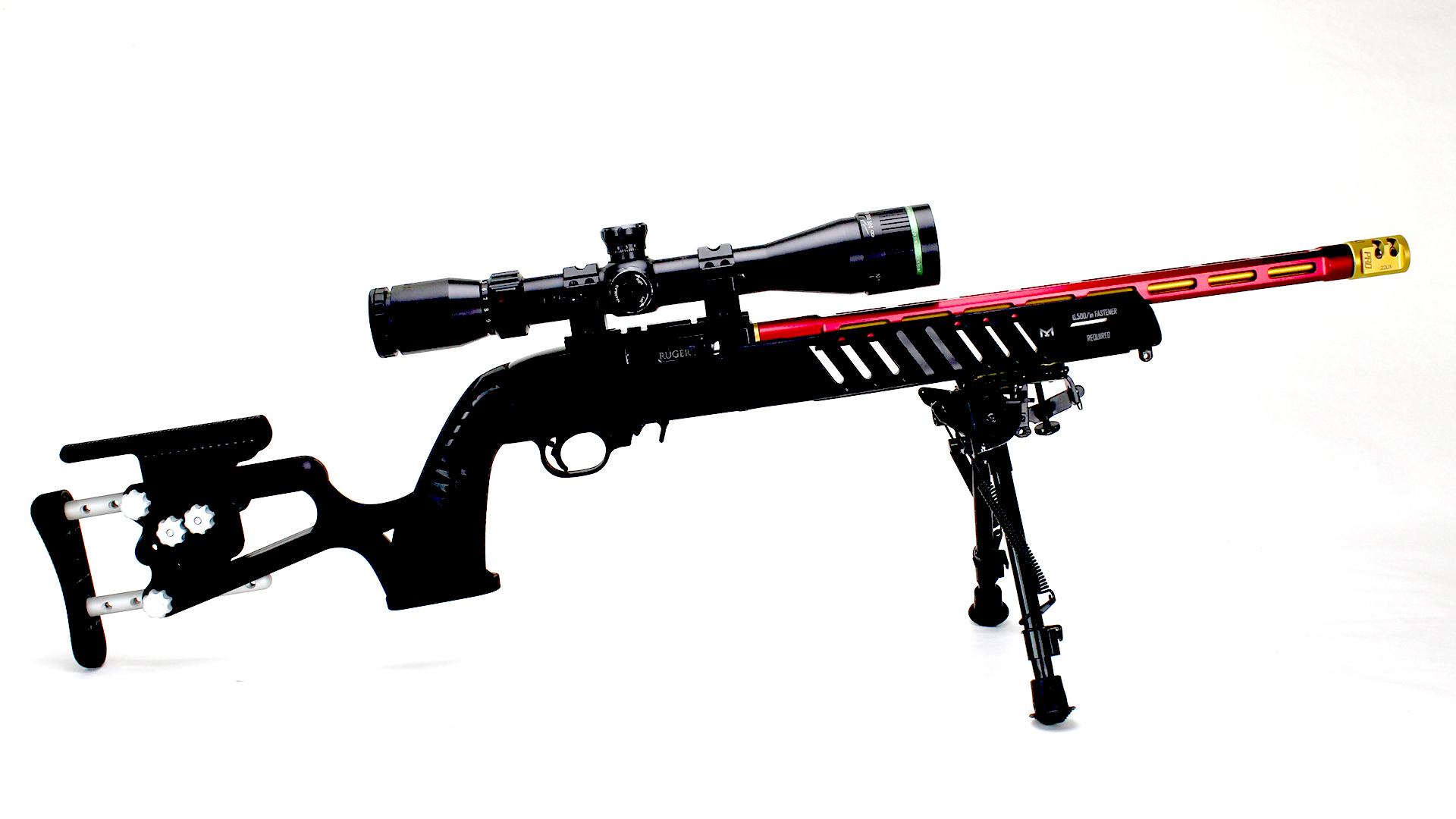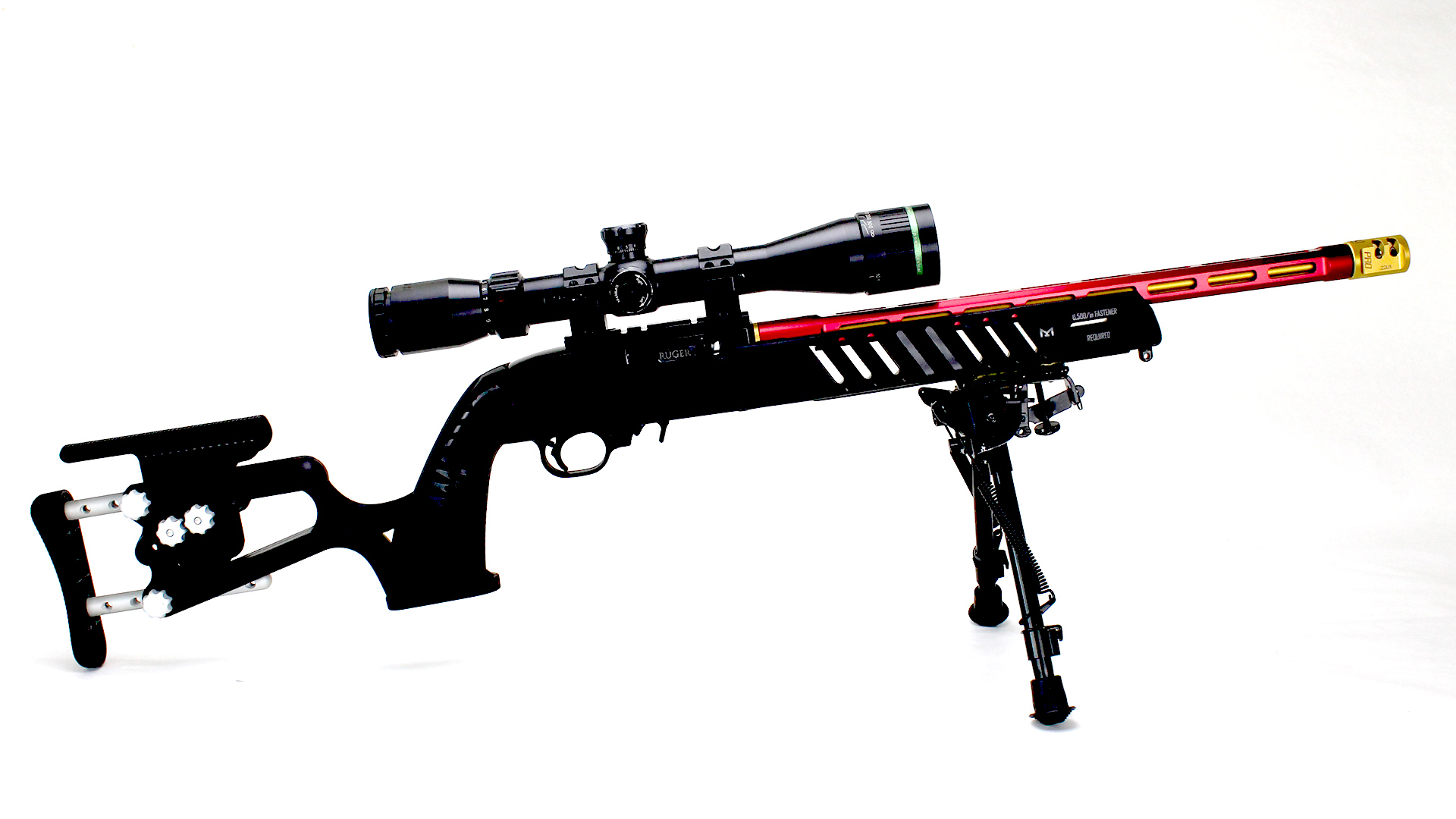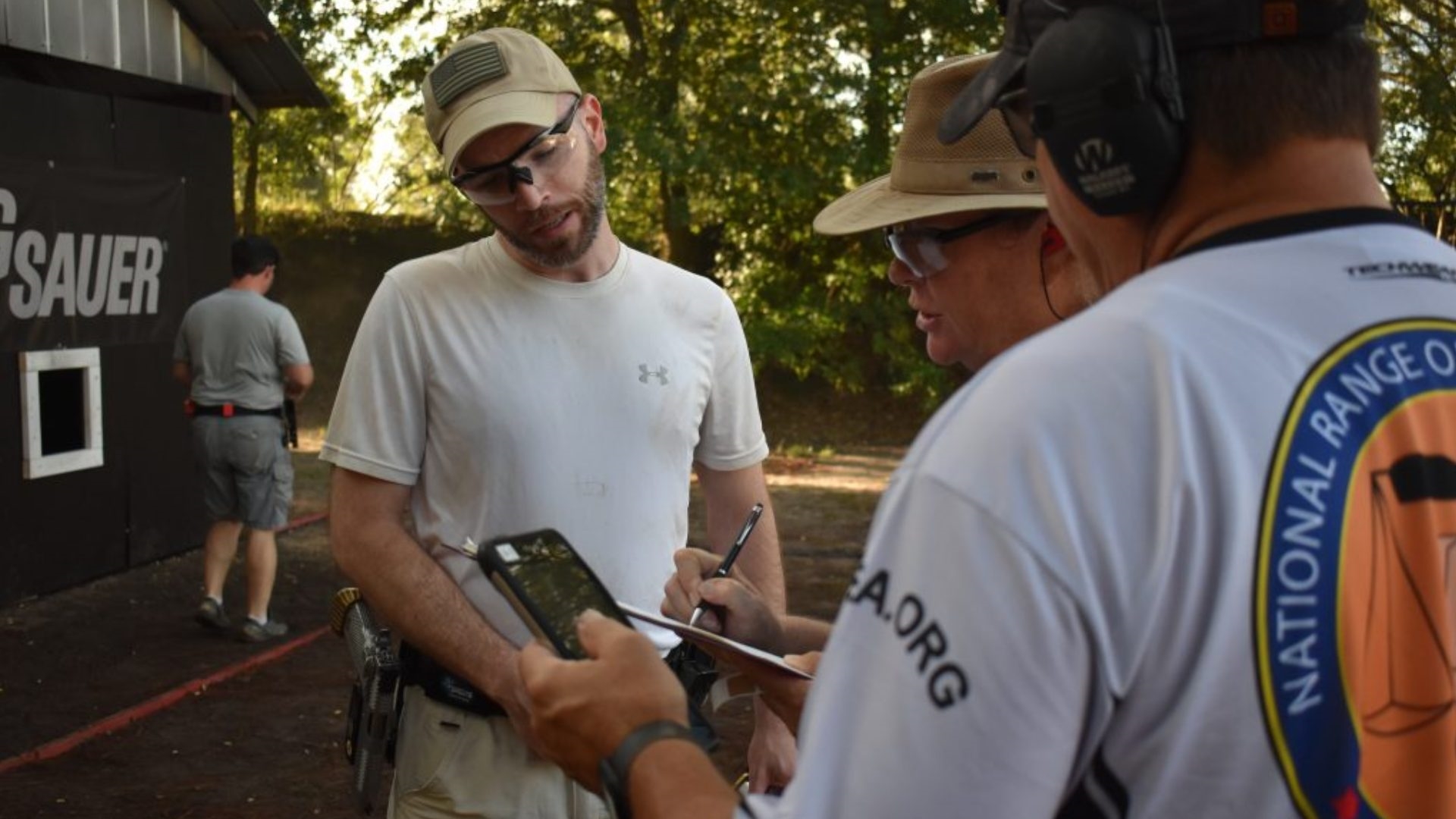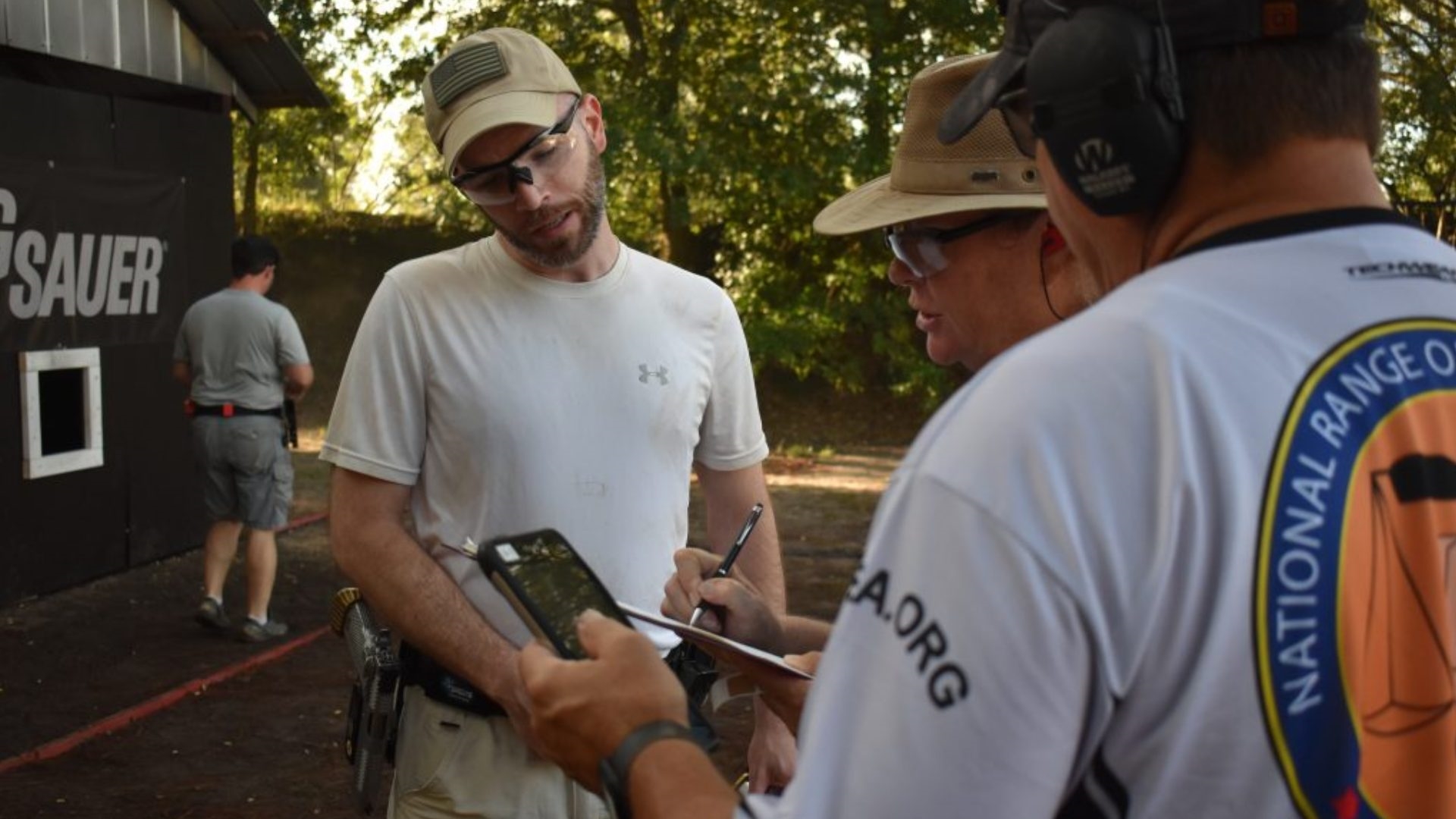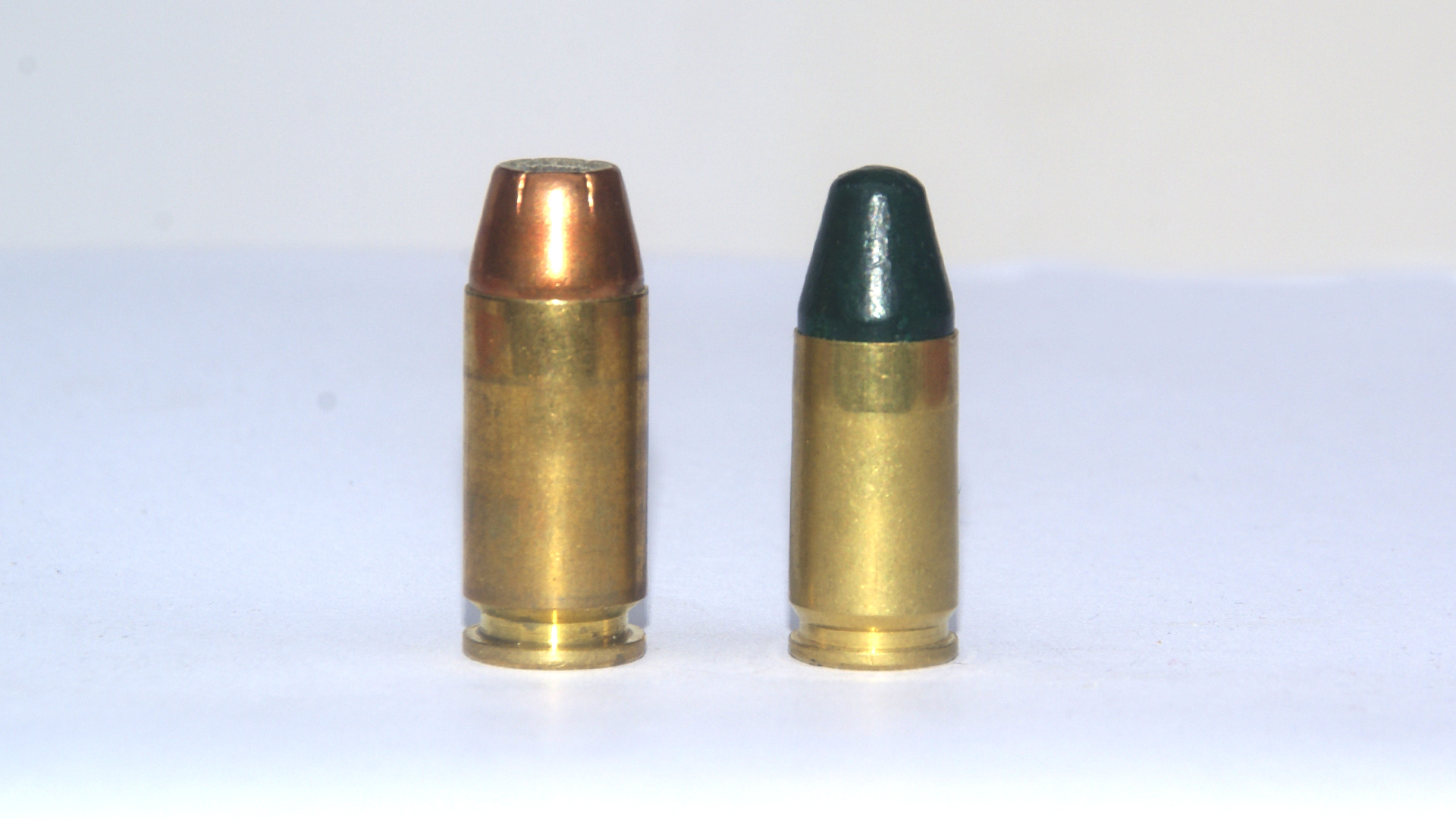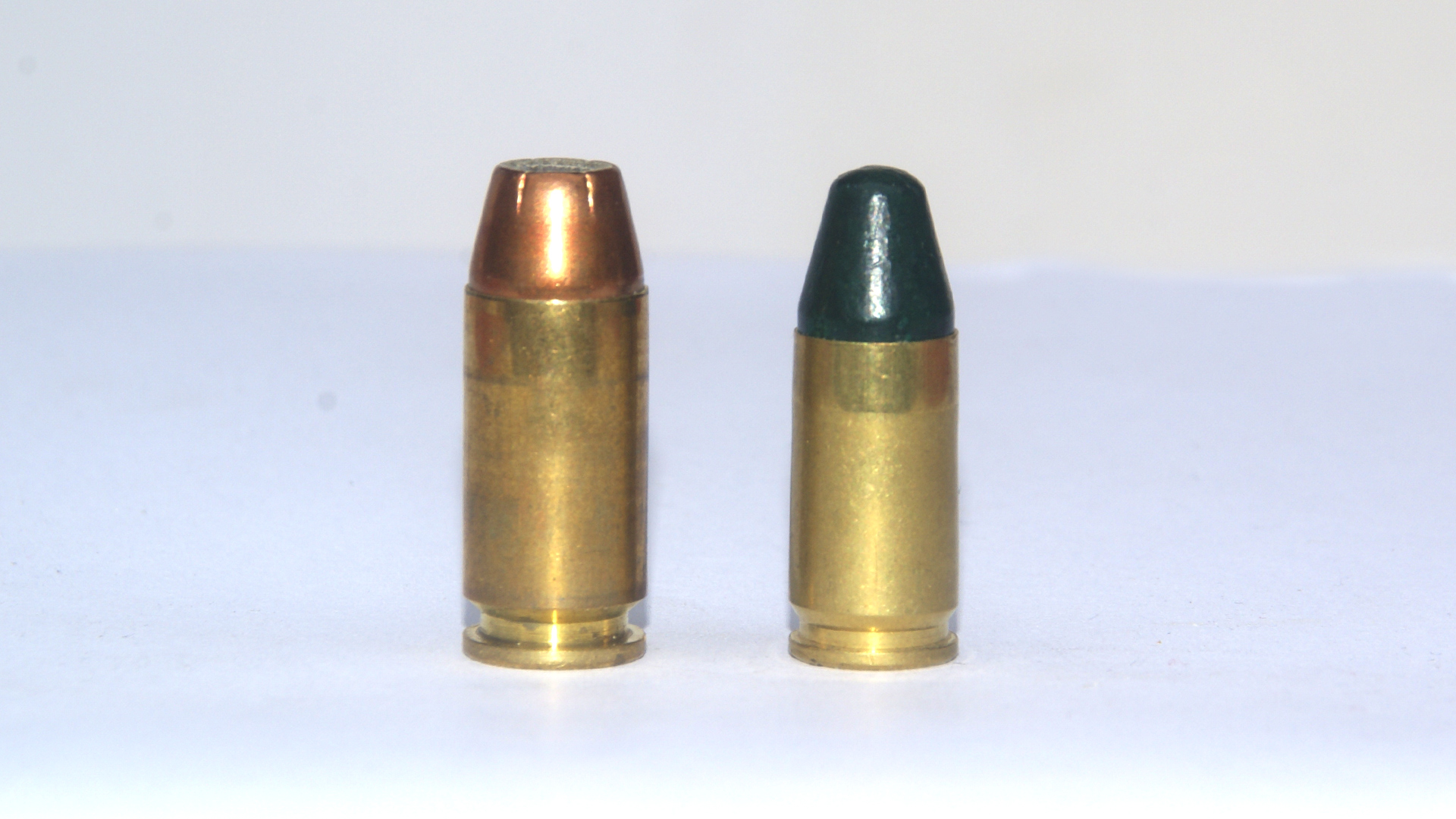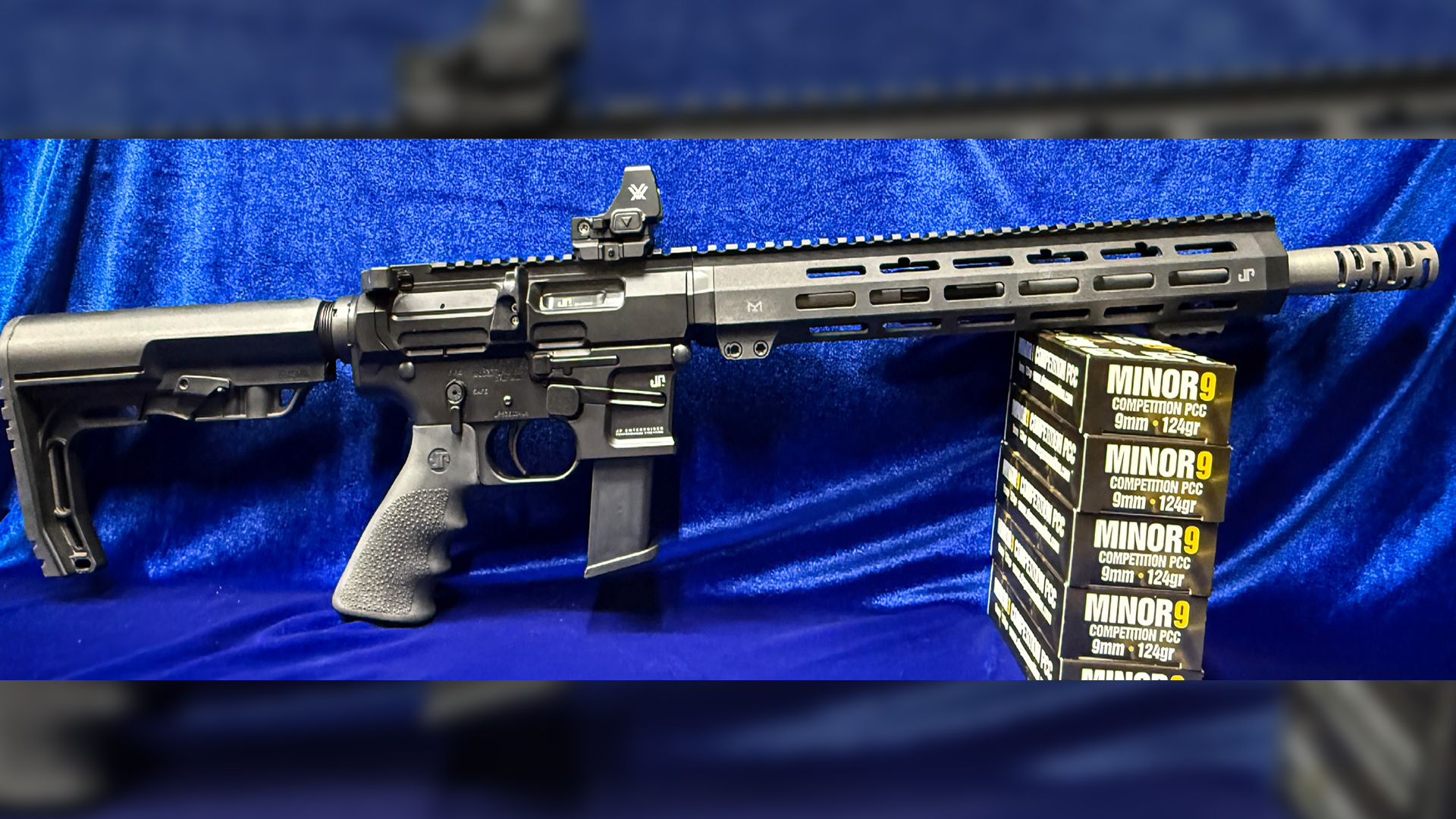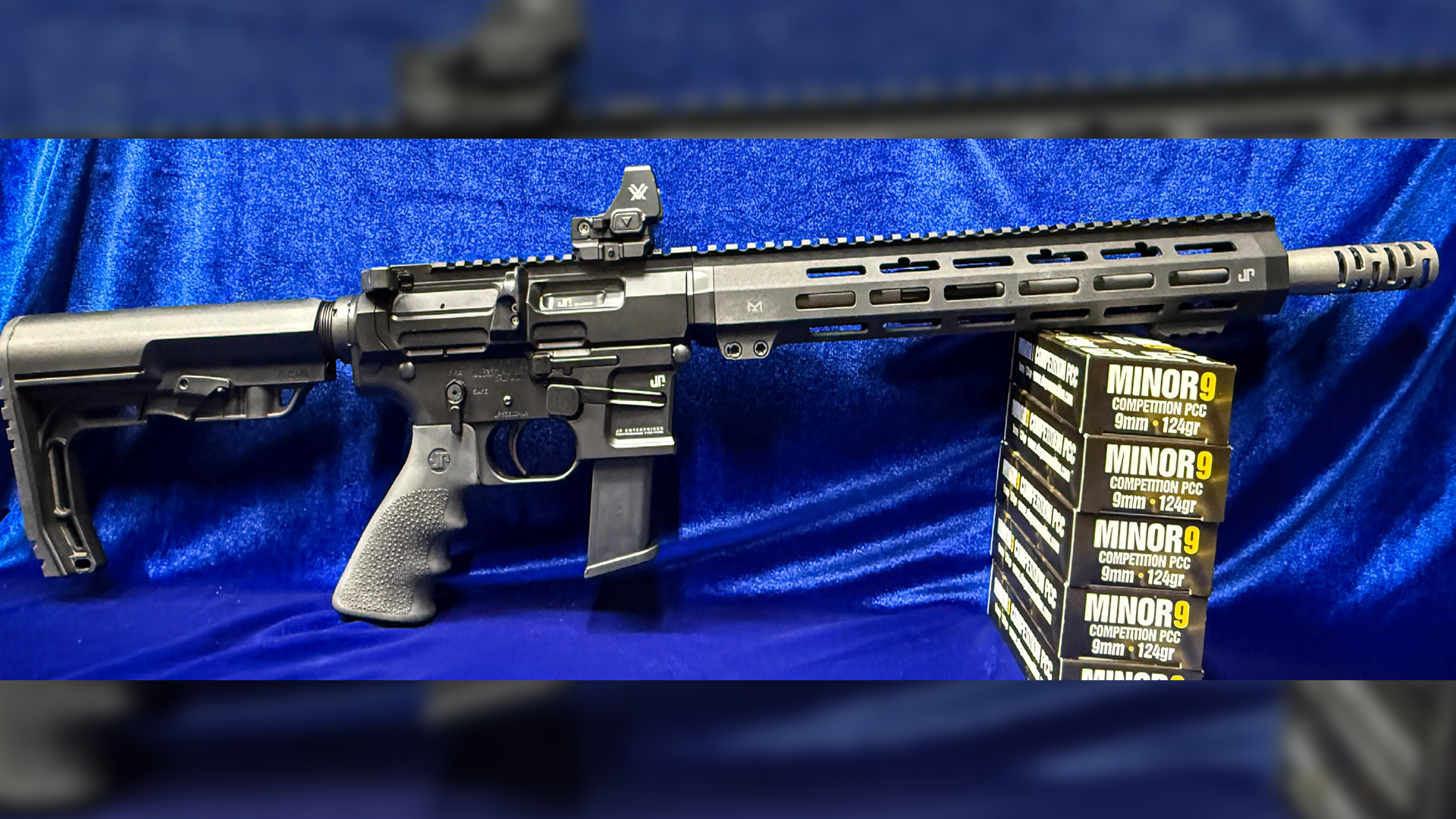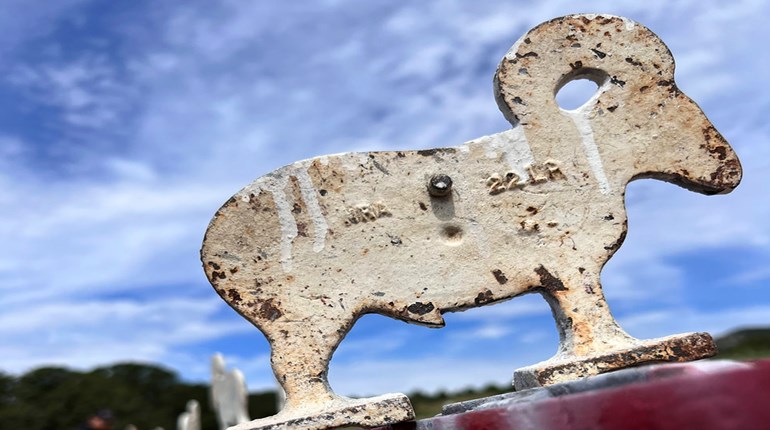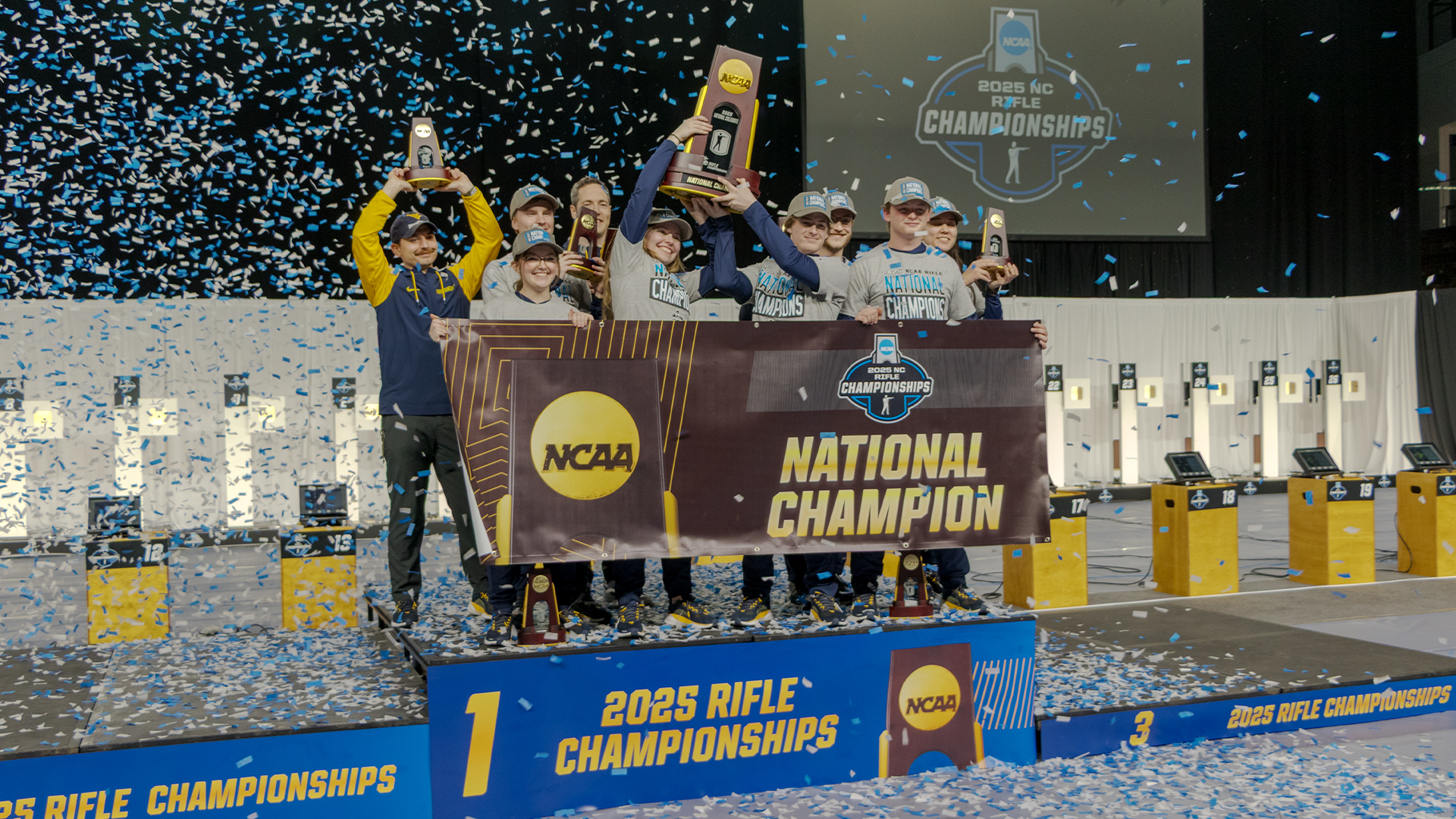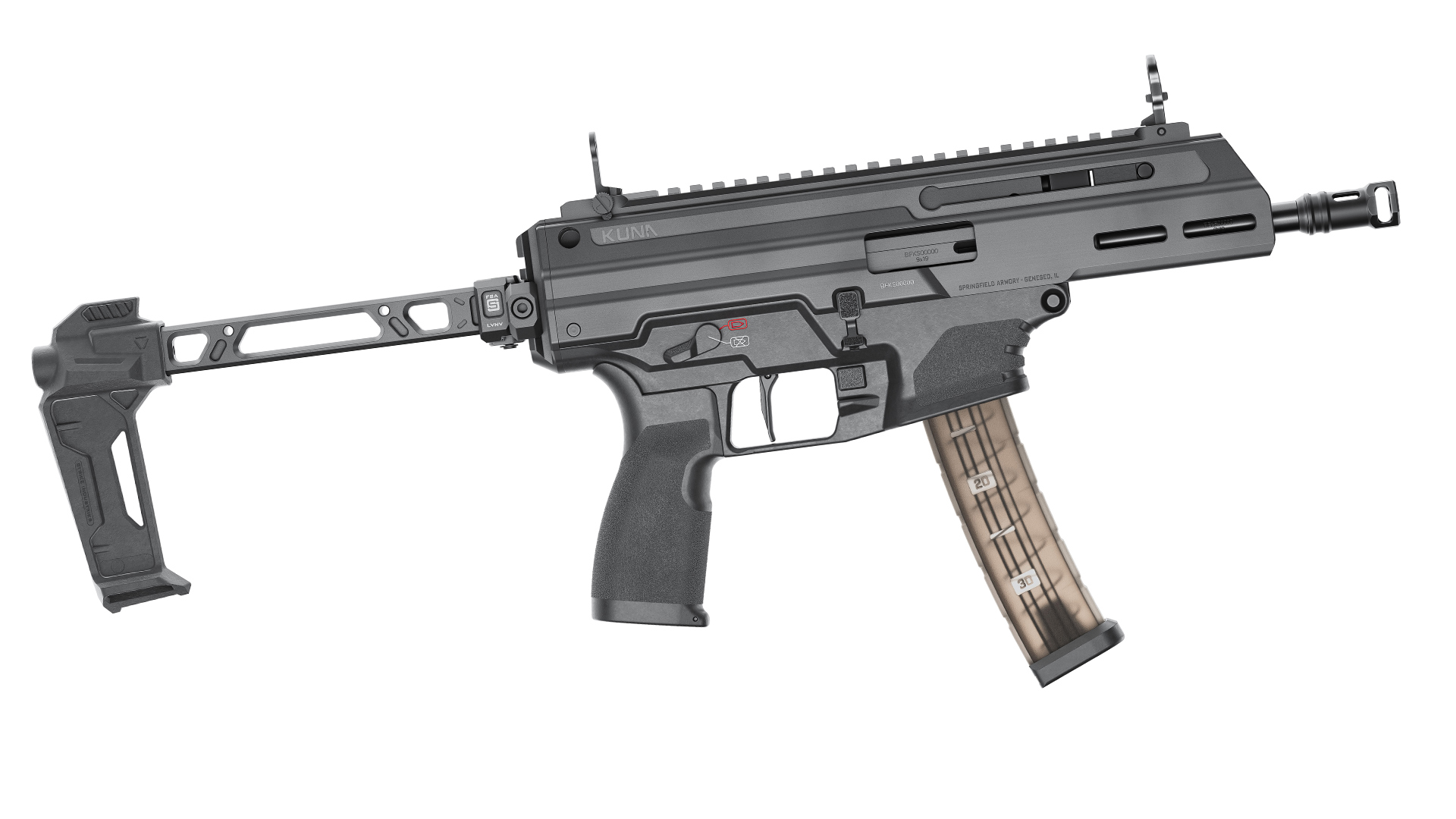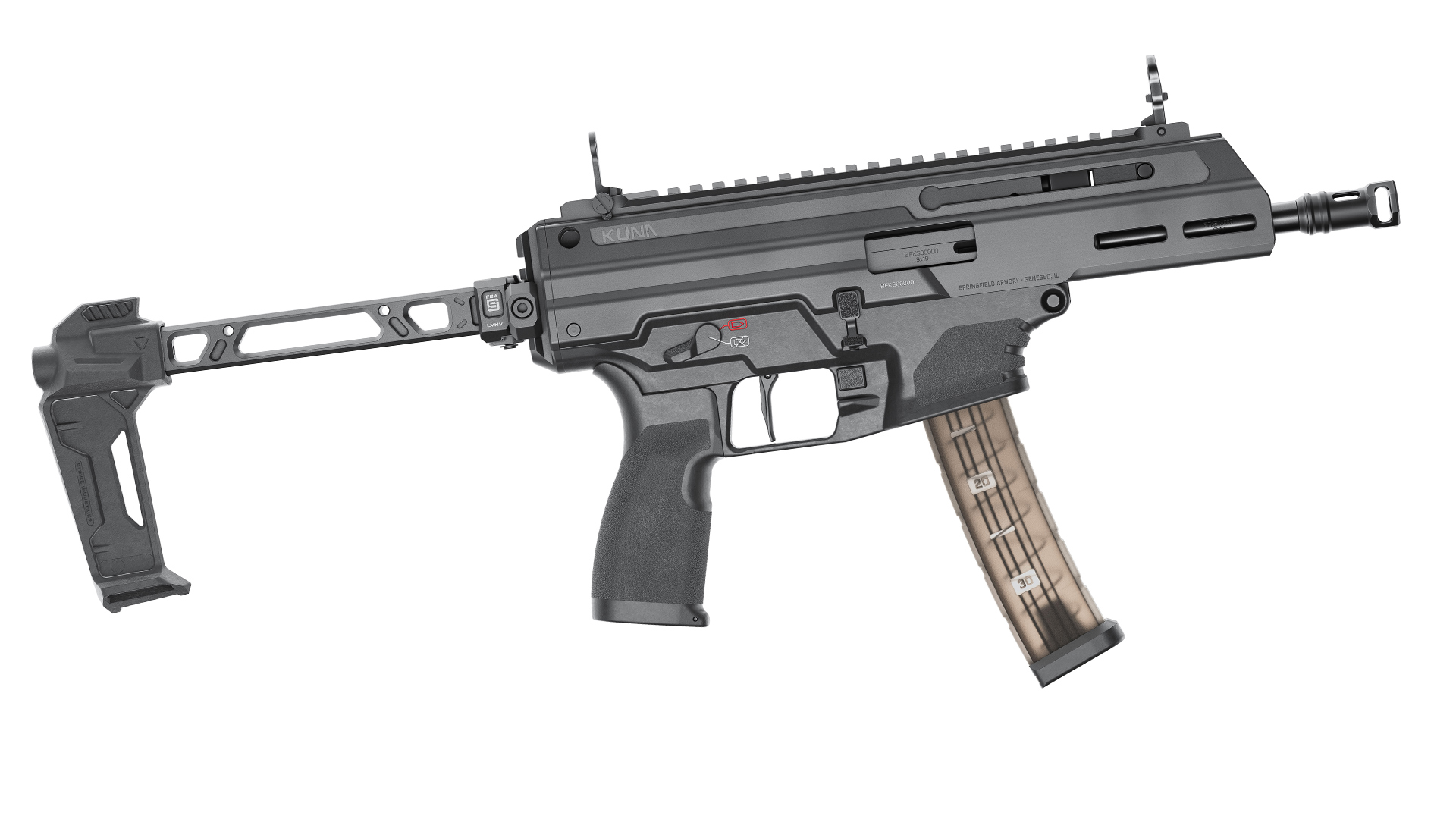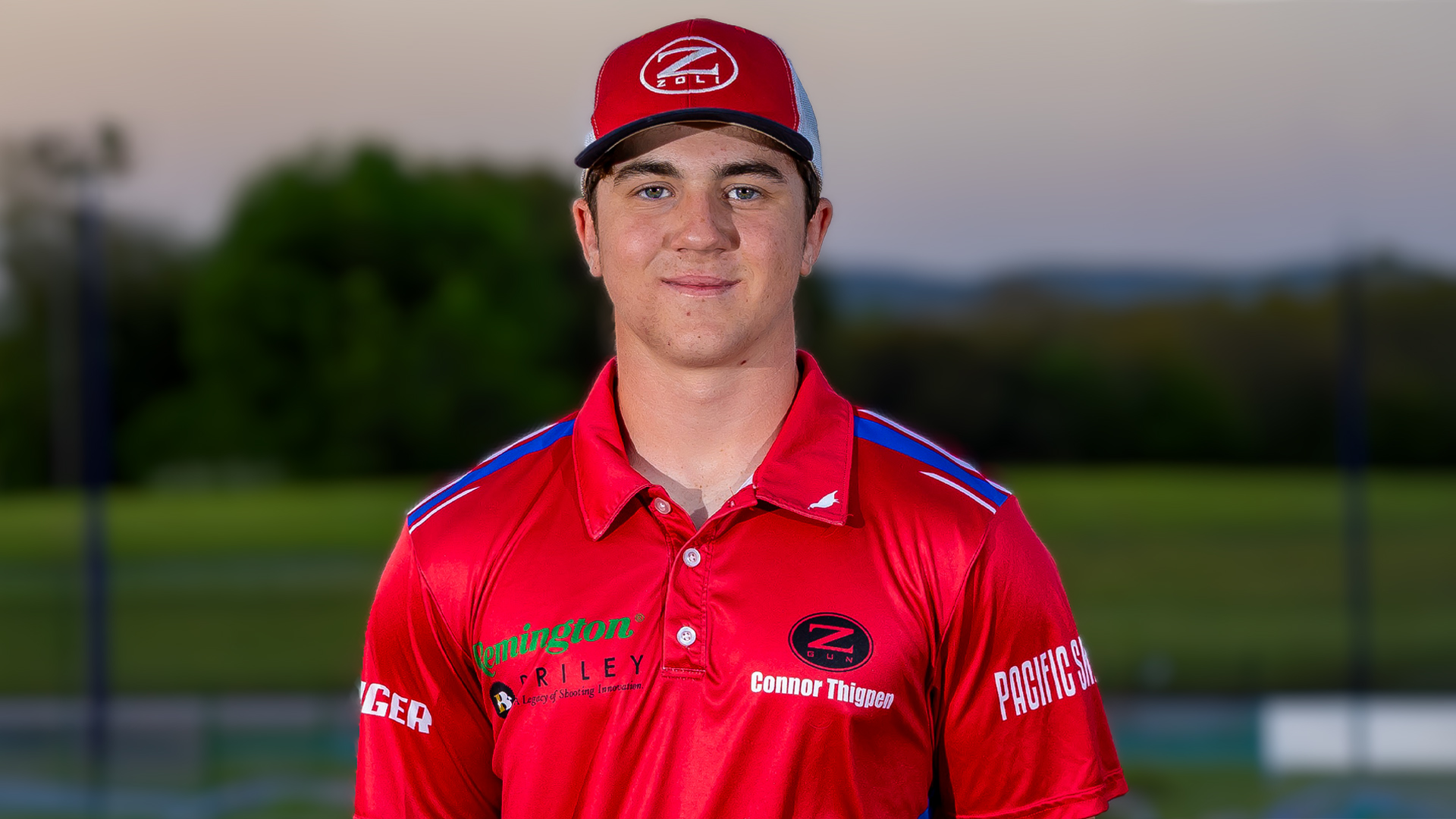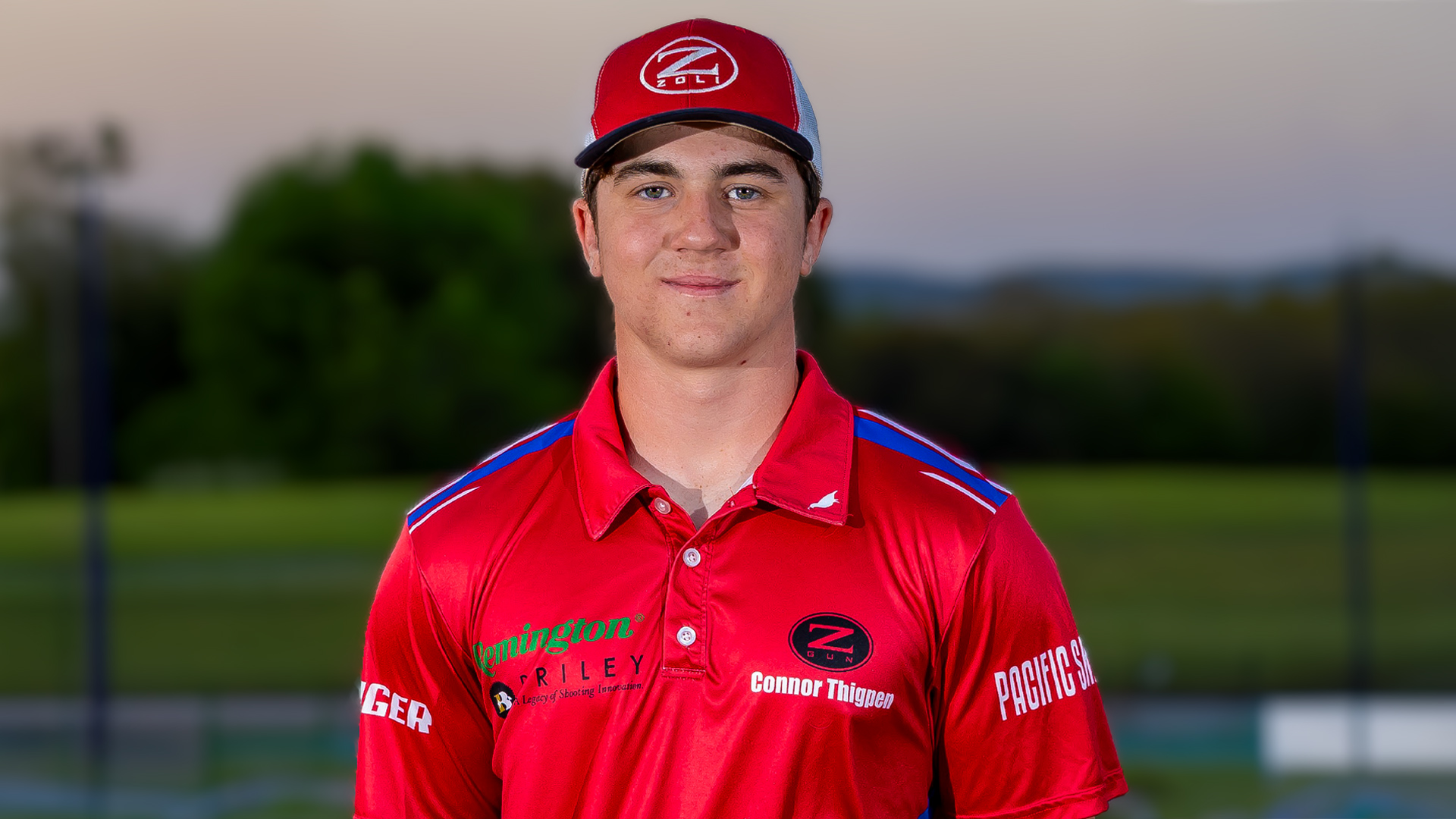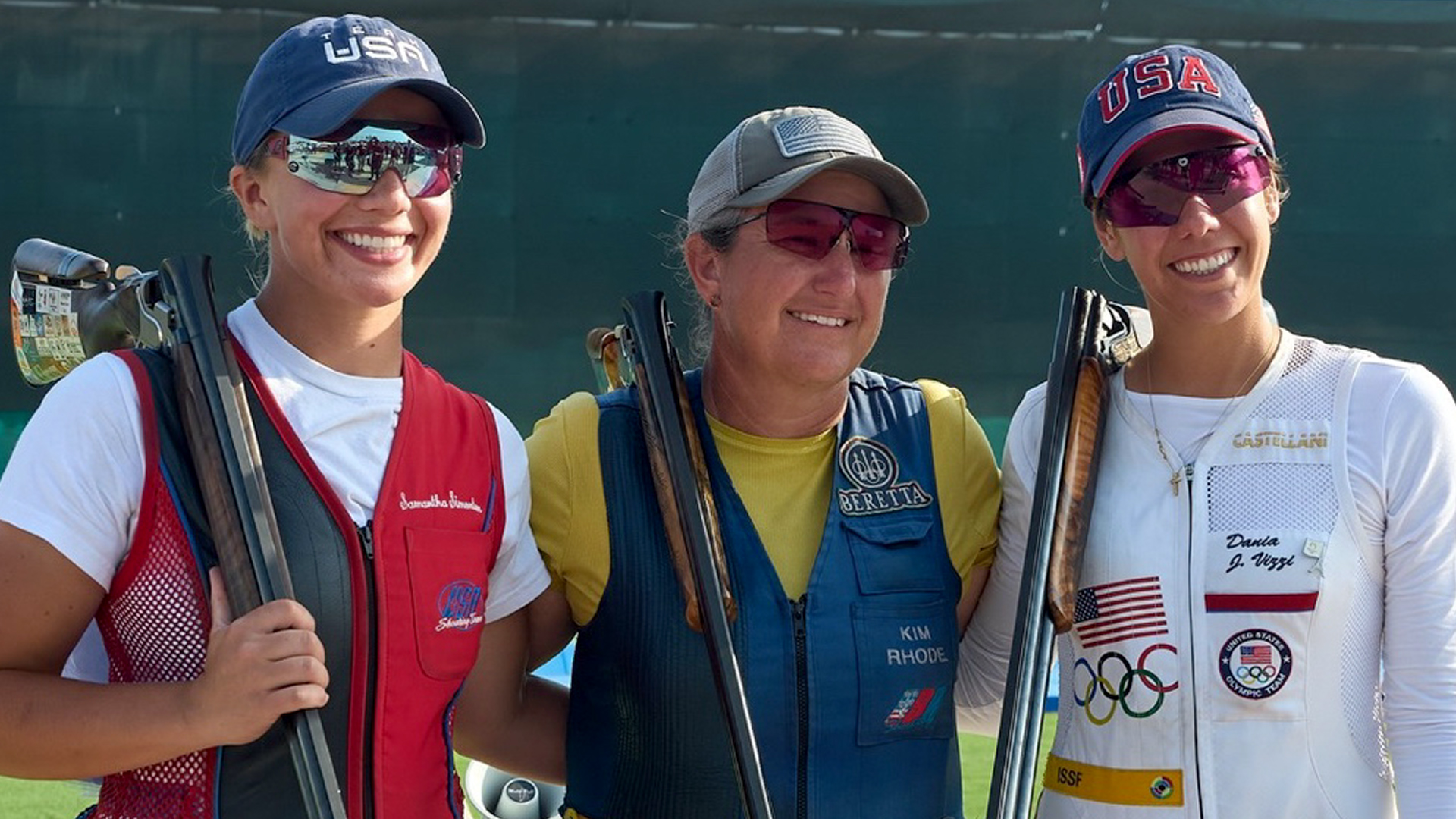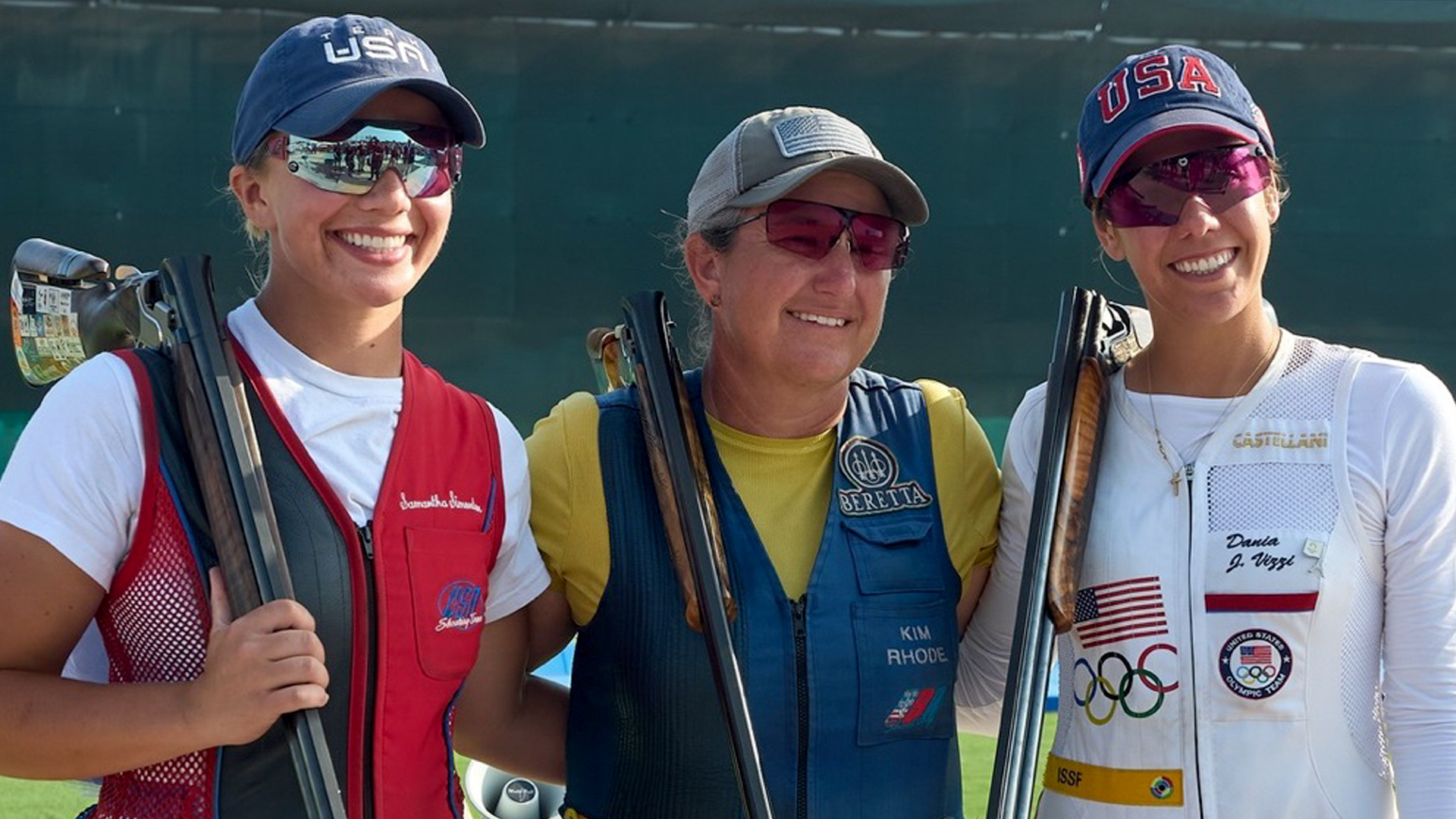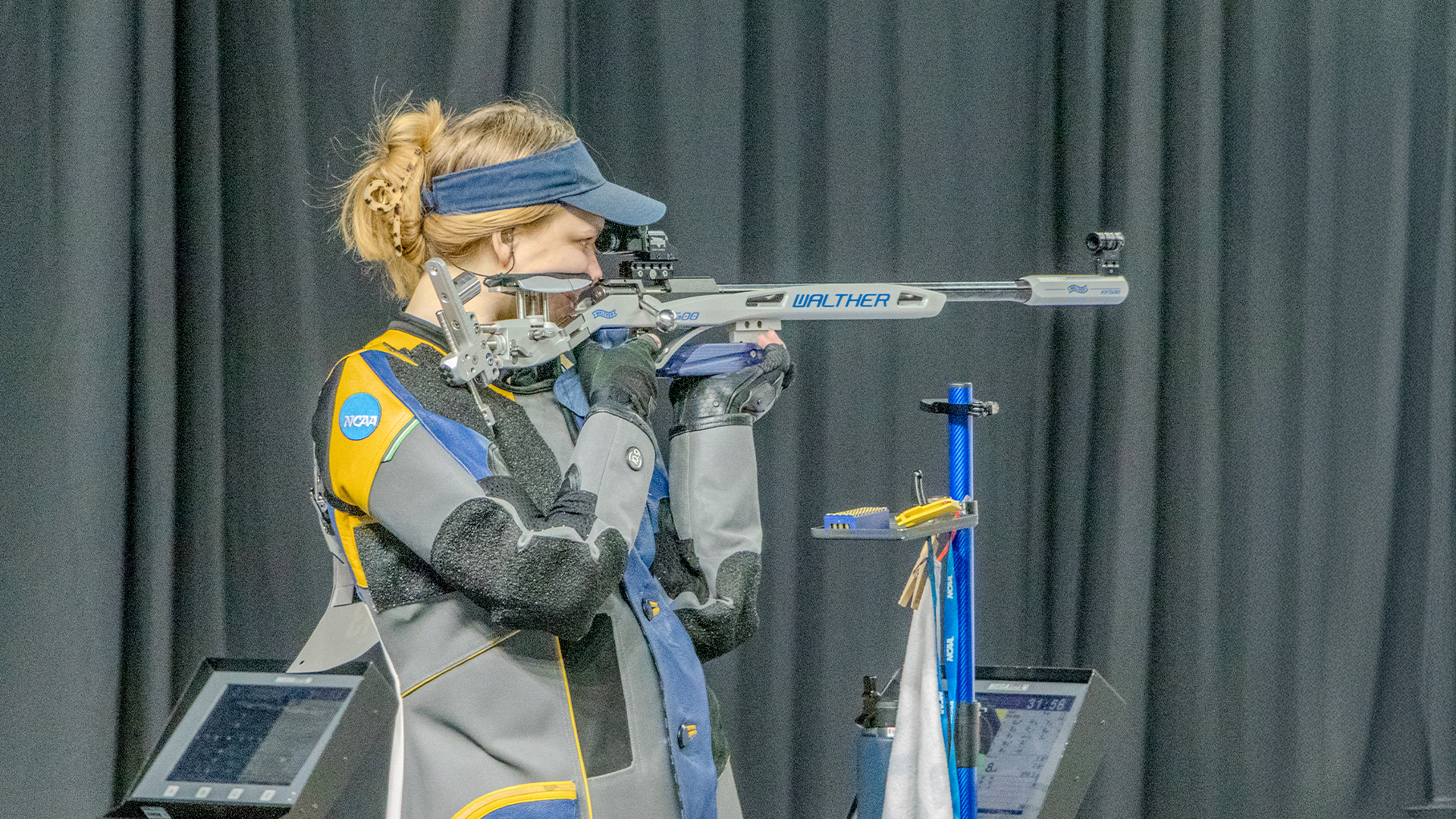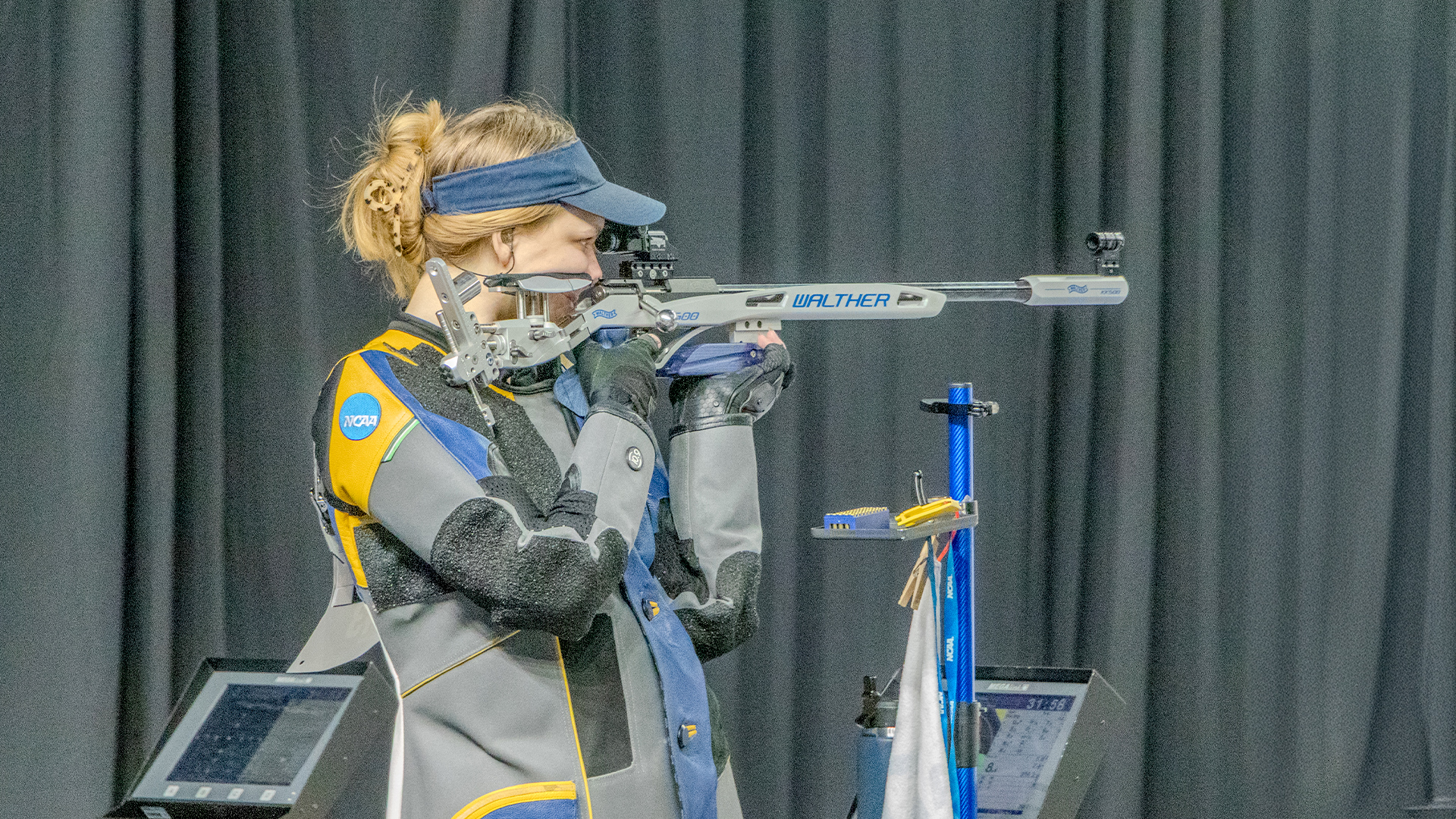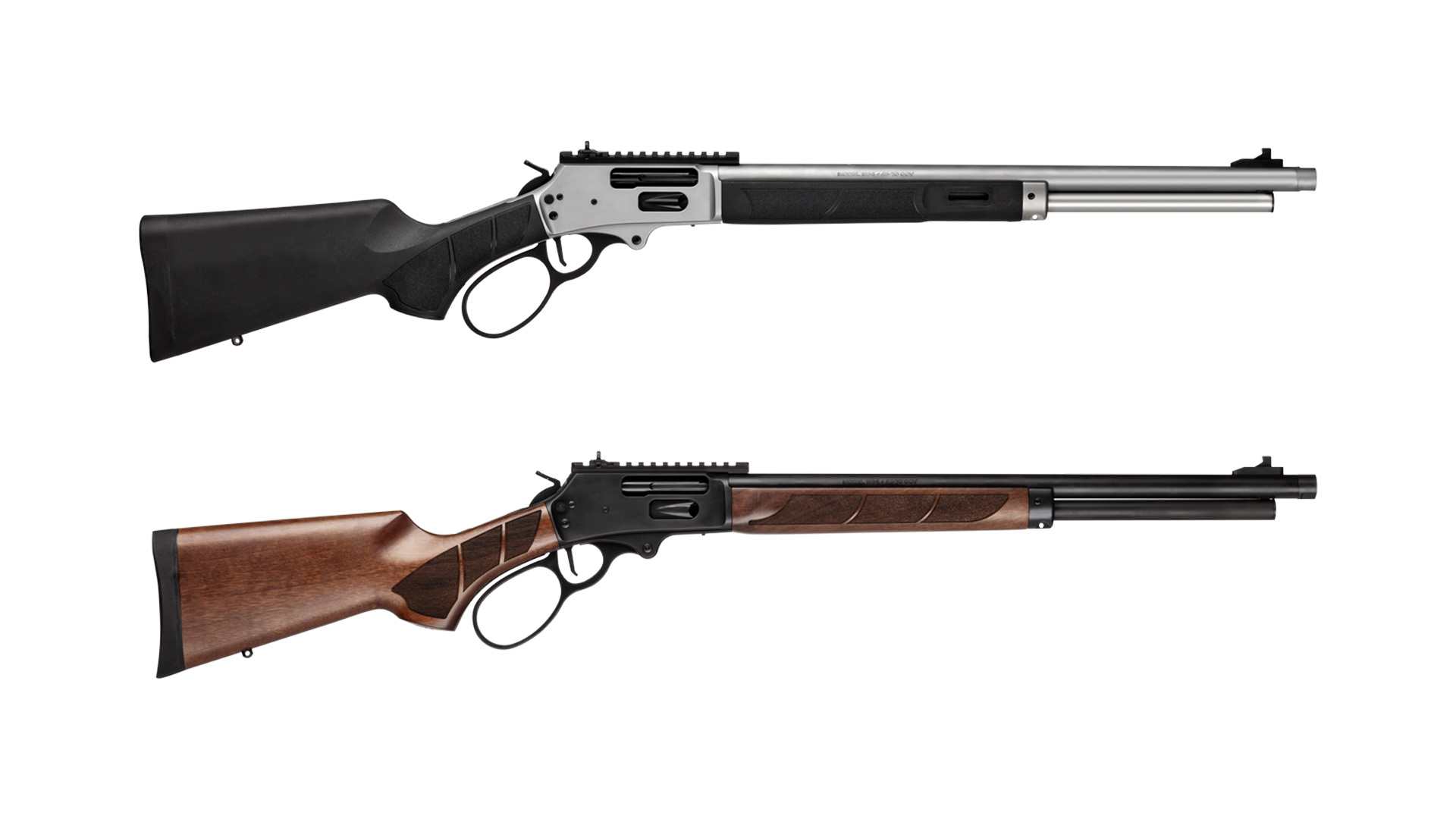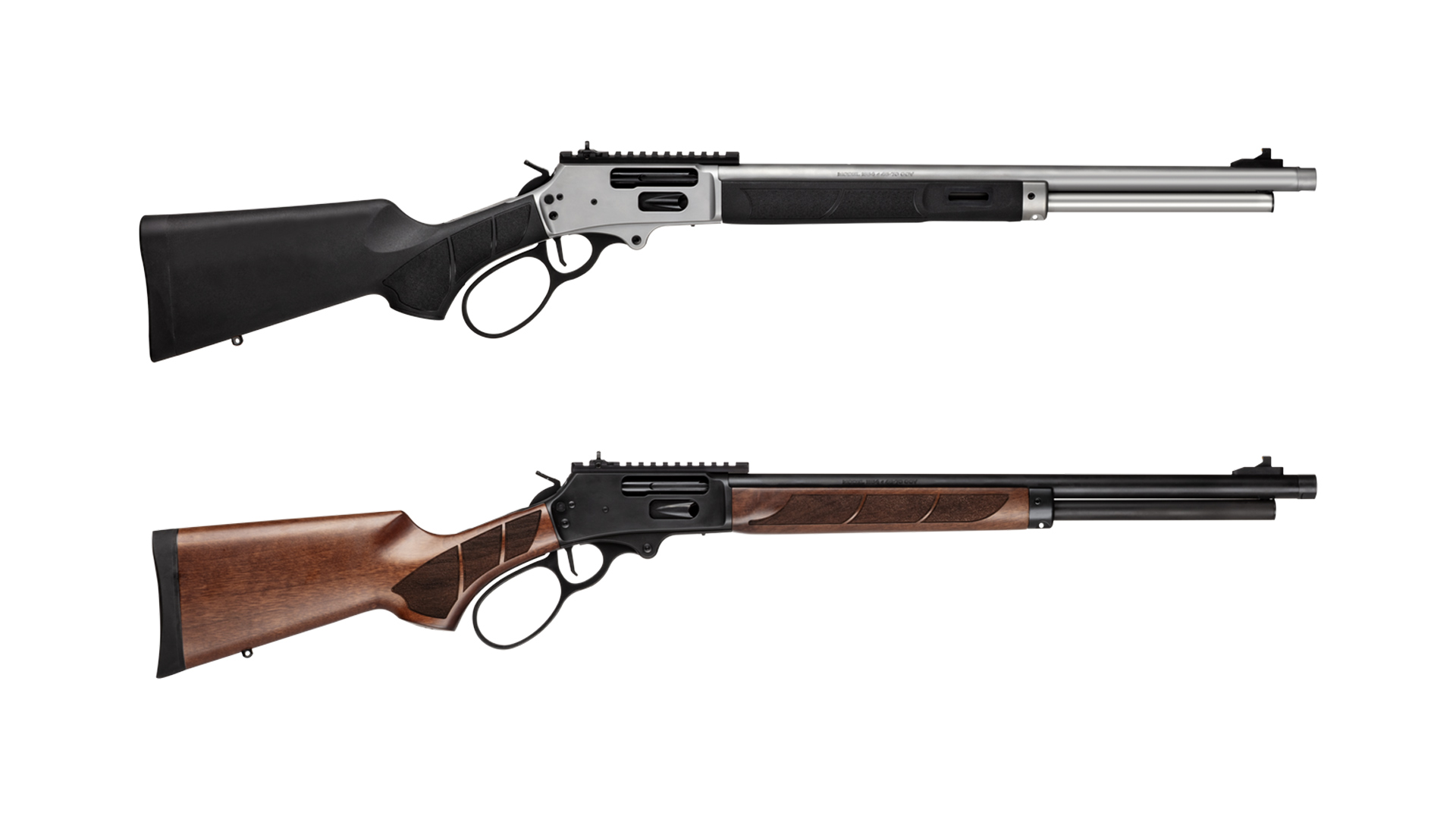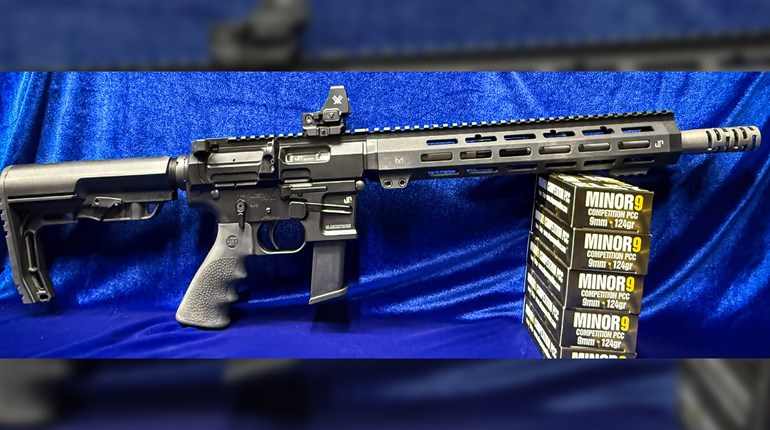
There was a time when I thought that, perhaps Camp Perry didn't exist. Maybe it was just 50 percent memory and 50 percent anticipation.
In the dark days when I could not shoot, my mind's eye would often have me driving along Ohio's State Route 2, passing between the twin stone lighthouses that guard the entrance to Camp Perry. I could feel my pulse quicken as I'd head up Niagara Road toward the Stars and Stripes waving in a north wind atop the massive white flagpole—the thought would bring a chill to me. Just before Commercial Row, the Mess Hall stood on the left and the Arcade on the right. I would pull into the parking lot just to the left of the howitzer and park under one of the few remaining maple trees.
I remembered when I was able to stand on my firing point and watch the cloud of black powder smoke roll forward over the flock of seagulls that had been startled into flight by the bark of the cannon signaling Colors; every competitor standing at attention with hand over heart or arm lifted to cap brim in salute. So it was for me, and so it had been for 100 years. The spirits of the beginners and veterans, both military and civilians who have graced those sacred grounds, stood alongside me.
Because I love shooting and live less than a half-hour way from Perry I always made it a point to compete in the National Matches. But it had been 10 years since I last shot on that firing line, for soon after the 1997 matches I began having neurological problems that affected my walking and balance—both of which are conducive to shooting three positions. The condition worsened, and by 2000 I had all but given up competitive shooting. Major back surgery in 2001 put an end to it for sure, or so I thought.
“Shooting helped me find an inner strength I did not realize existed”
Fellow competitors encouraged me to continue to try, given all the equipment, experience and skill I had acquired over the decades. For three years I dabbled in smallbore prone since I was still somewhat mobile and able to maneuver on the ground. However, as my neurological problems progressed it became more difficult, even with the assistance from fellow competitors, to get up and down from the prone position. I thought the competitive sport I'd loved for the past 35 years—from high school, into college, and through the majority of my adult life—had been abruptly, and conclusively, terminated. I constantly denied my disability, often shrugging it off as an aftereffect of the back surgery. My mobility decreased, to the point that it was even difficult to walk with the use of a walker. Finally, I saw a neurologist who diagnosed me with Multiple Sclerosis, a chronic disease that affects each person in a different way. In my case my lower extremities became severely compromised, forcing me to use a wheelchair for my day-to-day activities. I had the memories but not the anticipation, and so Camp Perry no longer existed to me.
Fortunately it did exist for some of my friends. I had a successful and fulfilling collegiate career at Ohio State University and in 2003 the Ohio State rifle coach, Pat Cherry, encouraged me to return to competition, in spite of the fact that I was confined to a wheelchair. I was determined and excited to be back on the range, but had underestimated the physical, technical and mental challenged I would face while relearning to shoot. It was touch to retrain my muscles and mind, but Coach Cherry was there. Brooks Harris, a Distinguished shooter from Nashville, TN, whom I met at the Bluegrass Prone Regional in 2001, related to my plight and has been a source of inspiration every step of the way.
As an engineer I researched the Paralympic rifle sports and the various ways of attaching a table top to a wheelchair. Bret Higgins, a rifle shooter form Carey, OH, pitched in with help on the mechanical issue and after two failed attempts, he developed a stable table and chair connection so that I could rest my elbows for both prone and kneeling. Even with Higgin's help I still had to modify and improvise new methods for achieving my natural point-of-aim, muscle relaxation and bone support from a rickety wheelchair on smooth concrete or, worse yet, uneven turf.
You might think that it's easy to shoot prone and kneeling while sitting down and shooting off a table, however the trials and tribulations of relearning the basics of shooting was a challenge. My first full-course effort out of a wheelchair was a disheartening 1030. However, in the three years since I've reentered the competitive shooting arena I've made great strides winning an NRA 3-position sectional with a score of 1159. Competing in the NRA-Beeman Grand Prix series, developed by Dave Baskin, the retired manager of NRA Disabled Shooting Services, gave me a chance to compete head-to-head with fellow disabled shooters; and what a competitive group of shooters they were!
Regaining my confidence and overcoming my fear of appearing different have been part of a long and challenging journey. But it was the journey to return to competitive shooting that taught me I was still a complete and whole person, that my disability didn't limit or diminish me, and that the shooting community would provide me with a support that my muscles could not. Shooting helped me find an inner strength I did not realize existed. Now I was ready to compete at the NRA National Smallbore Rifle 3-Position Championships again.
“I [thought] I'd never compete again, but with the help of friends and strangers in the shooting community, a positive attitude and a big assist from the NRA, I am again participating ...”
As the event approached I watched the daily weather forecast so I could adjust my regime accordingly. Keeping track of the temperature is a necessity to those with Multiple Sclerosis as extreme heat and humidity are demons that can exacerbate the symptoms of the disease. A week prior to the event, the forecasts called for 90-degree temperatures for Thursday and Friday, which then changed to sunny and 85, and again to partly cloudy and 75. The reality was that it rained early Thursday with mainly overcast skies for the rest of the day bringing sunny conditions on Friday. The shooting gods stopped in and added a nice 10- to 15-mph win form the north on both days, almost guaranteeing there would not be any 1160s posted during the Centennial Celebration. Fortunately the weather was in my favor, but the wind was a hindrance to myself, and all the competitors on the line.
The weather may have been out of my control but other things were not. A month earlier I had contacted the match director and made him aware of my particular needs. I did not want special favors but needed to take advantage of any assistance I might be eligible for concerning squadding, the all-important location of accessible parking, and the portable restrooms. The match director coordinated with the chief range officer for convenient squadding and parking and I owe them both a huge thanks. My brother, who has competed before at the National Matches, stepped in without being asked, volunteering to help with my equipment and target changing.
I fared well over the two days of individual competition. One of my goals was to make the top 10 percent, as I only need one Perry step to earn my NRA Smallbore Position Distinguished Award. True to the old shooting maxim, you win matches standing and lose them prone, I fell behind both days because of my prone scores. Winning in my case was finishing in the top 10 percent. I am at no disadvantage shooting prone out of a wheelchair in a gallery where the floor is level without wind, but my elevated position in the winds of Perry denied me the more protected prone positions of my competitors.
Because of this I held my own in the higher positions, as the weather affected me no differently than anyone else on the line. But the highlight of the championship came in the last match of the event—any sight kneeling—where my score of 374-8X put me in sixth place overall. In the end I finished 68th among the field of shooters, just into the top 20 percentile; just 44 points and 33 places from my goal. What I walked away with from my individual performance is that you learn more from your mistakes than you do from your victories.
After two days of fighting the wind I anticipated returning Saturday morning for the team matches, hoping for calmer conditions. A month earlier I met one of my goals at the Ohio Position Championships held on the same firing line. Here I made the state team and looked forward to shooting in the team events at the National Matches in favorable conditions. Such was not to be the case, as the conditions on Saturday were almost a carbon copy of Friday. However, the excitement of being back on the firing line with my fellow Ohio shooters more than made up for the wind. The icing on the cake was winning first place in the state association category of the any sight phase.
I [thought] I'd never compete again, but with the help of friends and strangers in the shooting community, a positive attitude and a big assist from the NRA, I am again participating in the shooting sports.
Note: Greg Drown is still competing, that's him in the photo at the top of this article on the firing line at the 2018 NRA National Smallbore 3-Position Championships in Bristol, IN.

